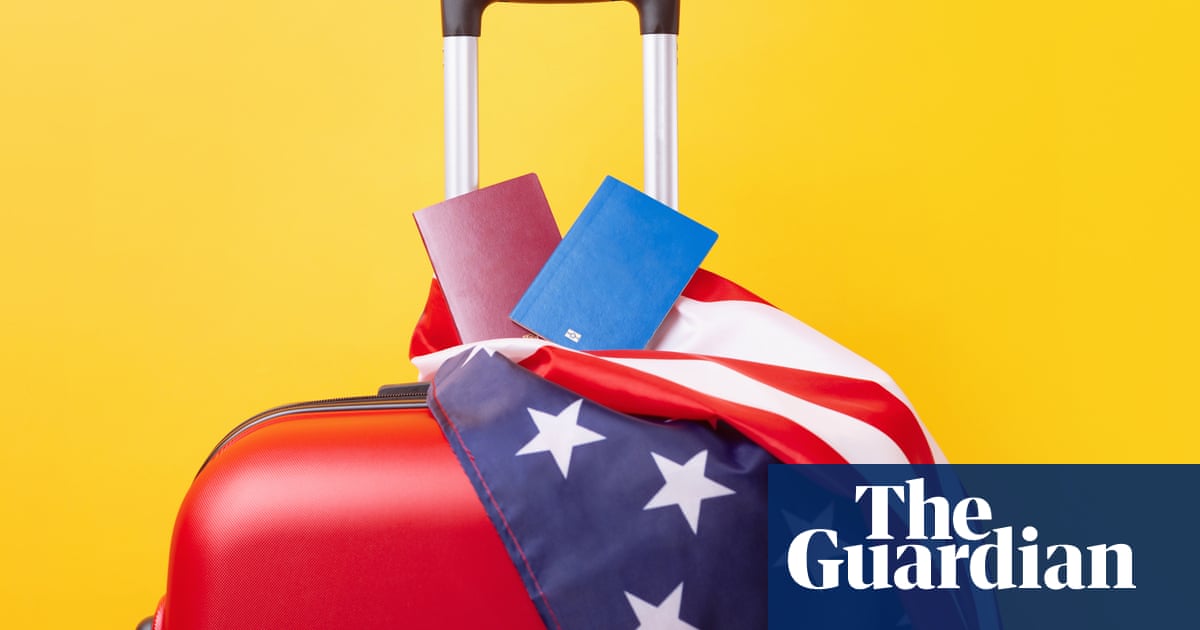The Cost of Exclusion: How Immigration Policies Impact Travel in the U.S.
Kindness doesn’t cost a thing. Yet, the rising tide of exclusionary rhetoric and policy in the United States has a significant price tag. According to a recent study by the World Travel and Tourism Council, the U.S. is projected to lose a staggering $12.5 billion (£9.4 billion) in international travel spending this year alone. This financial loss isn’t merely an economic statistic; it represents the significant impact that heightened anti-immigrant sentiments are having on the tourism industry and broader global perceptions of America.
The Message from the Top
The administration’s approach to immigration and tourism has raised flags internationally. Vice President JD Vance, while discussing the upcoming 2026 FIFA World Cup, made light of the prospect of deporting football fans who might overstay their welcome. His comments reflect a broader ideology that prioritizes stringent immigration enforcement over welcoming enthusiasm typical of global sporting events. With nearly 100 countries expected to participate, it raises the question: Is the U.S. truly invested in fostering a welcoming environment?
Wandering into Uncertainty: The Current Travel Climate
For many prospective travelers, particularly those with family connections in the U.S., the decision to visit has become an exercise in risk assessment. The landscape of immigration enforcement has shifted since the inception of Trump’s second term. Murali Bashyam, an immigration lawyer, suggests the fears surrounding detention might be exaggerated, yet numerous legal experts indicate a troubling trend: an aggressive push for increased deportations, which fuels uncertainty for those wishing to enter the country.
Targeting Ideologies: A Dangerous New Precedent
Critics of current policies highlight fundamental shifts in how non-citizens are treated, particularly based on their political beliefs. Legal Director Golnaz Fakhimi notes that two executive orders—EO 1461 and EO 14188—encourage scrutiny based on ideological viewpoints. For individuals who engage in political discourse contrary to the administration, like critiques of Israel, the risks of entry denial or even deportation have sharply increased. There is a pervasive fear that the scope of scrutiny may widen, leaving many feeling exposed if they have publicly expressed dissent.
The Role of Social Media
As travelers navigate this fraught landscape, it’s important to recognize another layer of scrutiny: the monitoring of social media. Sophia Cope, an attorney at the Electronic Frontier Foundation, points out that social media identifiers are now commonplace in visa applications, with agents increasingly referencing online activity during interviews. This scrutiny raises critical questions about privacy and freedom of expression for both citizens and non-citizens alike.
Political Beliefs: A Double-Edged Sword
Even U.S. citizens are encountering obstacles upon re-entering the country based on their political beliefs. The case of Hasan Piker, a leftist YouTuber who faced extensive questioning upon returning from France, highlights the tension that exists for those who vocally critique the administration. While CBP agents denied targeting Piker based on his political views, the implications of such experiences linger—suggesting that ideological conformity may influence border experiences.
The Legal and Practical Implications of Travel
Contingent upon one’s immigration status, the risks associated with border crossings can vary dramatically. Green card holders and citizens technically cannot be compelled to unlock devices, but the potential for seizure remains. For visa holders, refusing to provide access may lead to outright denial of entry. The nuances of immigration law create a complex web, wherein even minor infractions or historical legal troubles can have disastrous consequences for travelers.
Navigating the Risks
Understanding your visa type and the specific rules associated with it is imperative in making informed decisions about travel. Experts stress the importance of appearing credible and grounded when interacting with authorities. Having compelling reasons to be in the U.S., such as family connections or business dealings, can help mitigate perceived risks.
The Impact of Criminal Records
Travelers with any type of criminal history may find themselves navigating a particularly treacherous path. A recent case involving a U.S. citizen returning from his honeymoon illustrates how past convictions, no matter how old, can resurface to impact current border experiences. This underscores a broader trend: individuals must tread carefully, balancing personal history against the backdrop of aggressive immigration enforcement.
The Student Experience
For international students, additional layers of scrutiny exist. Affiliations with contentious campus groups can attract federal attention, leading to fears and uncertainties regarding travel. Activism, often a cornerstone of student life, can now pose a risk, particularly when external organizations keep tabs on political protests.
Personal Choices in a Risky Context
As travelers assess their stridently held beliefs, they face a personal dilemma. Should they tone down their views to mitigate risk, or stay true to their ideals? The choice between self-censorship and holding firm to one’s principles is fraught with emotional and ethical implications.
The Courage of Resisters
Despite fears, many continue to advocate for justice and inclusivity, risking exposure for the sake of their beliefs. The resilience of non-citizens and undocumented individuals asserting their rights serves as a testament to a broader struggle for equity and justice. It illustrates the dichotomy between personal safety and ideological commitment, a critical aspect of the ongoing conversation about the American identity in a rapidly changing global context.
The interplay between immigration policy, personal values, and the financial implications for the United States is complex and undeniably significant. Whether viewed through the lens of economic impact or moral integrity, the ramifications of exclusionary practices highlight a crucial crossroads for both travelers and policymakers alike.


